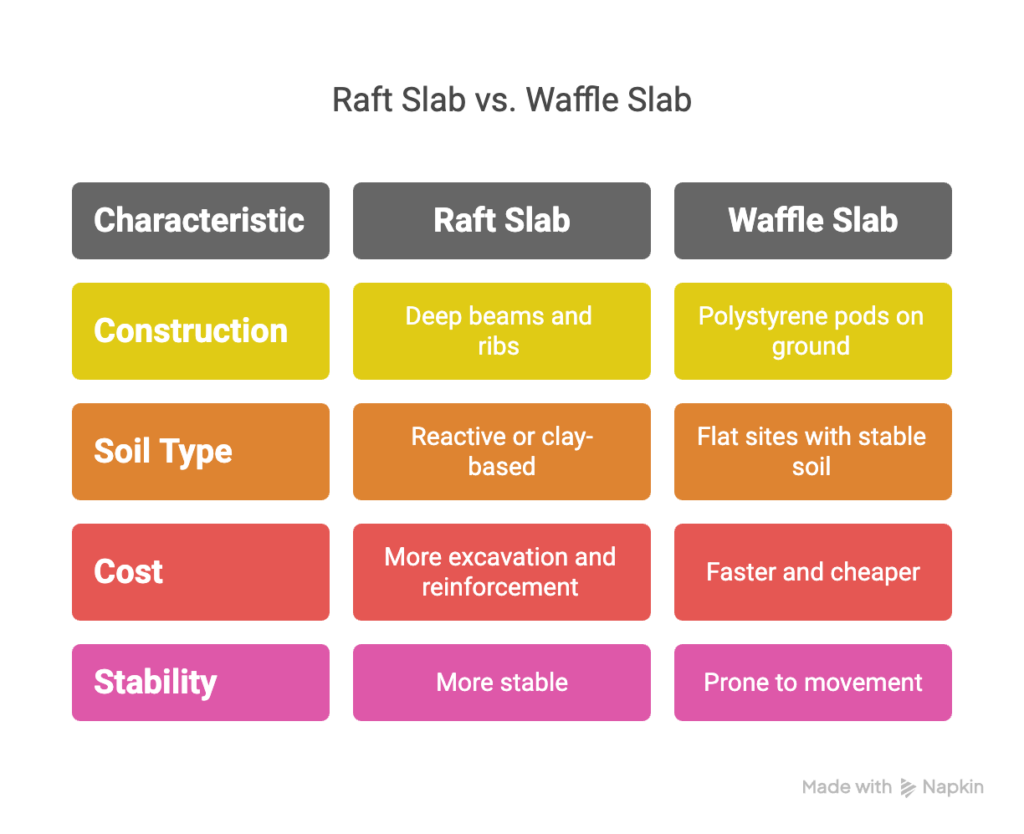Difference Between a Raft Slab and a Waffle Slab
Transcript
Question: What’s the difference between a raft slab and a waffle slab?
Answer: See how this one had all the rebates done, like a grid of beams? That’s classified as a raft slab. It has foundation systems that go down into a clay substrate—something with a particular bearing capacity.
A waffle pod sits more on the surface of the ground. It’s generally poured with polystyrene blocks underneath to form the voids and ribs. The ribs are a lot closer together but smaller and thinner. It requires far less excavation but is generally more problematic with ground movement and so on.
They’re designed to save money and are appropriate for flat sites, but they do have a history of moving too much, especially on highly reactive sites.
Answer: A waffle pod also helps where there’s a lot of rock, so you don’t have to dig out much. You just sit it on top. In a couple of old developments we did, we used control joints for very large slabs—like in medium-density developments. They’d put in control joints every 15 metres or so, but it was always specified by the engineer.
What I used to do was put cement sheets between sections of the slab. It helps to stop it from cracking.
Raft Slab vs Waffle Slab: Which Concrete Slab Is Right for Your Build?
When choosing a concrete slab for your new home, you’ll often come across two main types: raft slabs and waffle slabs. While both provide strong foundations, they’re suited to different soil types and site conditions.

Raft Slab
Waffle Slab
Constructed with polystyrene pods on compacted ground
Sits above ground level rather than embedded
Faster and cheaper to construct
Suitable for flat sites with stable soil
Not ideal for highly reactive soils, as it’s more prone to movement and cracking
Includes deep edge beams and internal ribs built into the ground
Provides strong support for reactive or clay-based soils
Requires more excavation and reinforcement
Generally more stable but can be more expensive due to labour and materials
